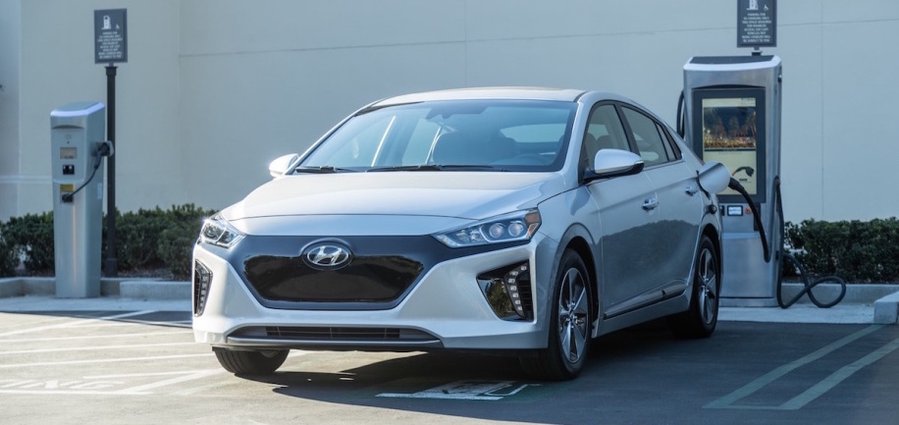The Hyundai Ioniq lineup of electrified vehicles is being updated for 2019 with new safety technologies, more voice-recognition features and standard remote charge management for electric and plug-in hybrid models.
Models equipped with navigation capabilities will get an enhanced, natural-language, server-based voice-recognition with a new point-of-interest search database that can suss out locations of charging stations. Driver attention alert and high-beam assist are new available features, along with automatic emergency braking with pedestrian detection, which is standard for the SEL trim along with lane-keep assist and adaptive cruise control.
Hyundai says it's working with ChargePoint, which operates more than 32,000 electric-vehicle charging stations, to provide Ioniq owners with access cards and the ability to locate charging stations through the MyHyundai/Blue Link mobile app. Ioniq Electric and PHEV models come with Blue Link-, Google- or Alexa-enabled capability to manage and monitor charging schedules remotely to help take advantage of lower electricity prices during off-peak hours.
Hyundai sells the Ioniq in Hybrid, Electric and Plug-In Hybrid variants. The Hybrid boasts an estimated 58 mpg rating from its 1.6-liter direct-injected engine, 32-kilowatt electric motor and 1.56 kWh lithium-ion polymer battery. The Electric boasts a 136 MPGe rating and 124-mile driving range from its 28.0 kWh lithium-ion polymer battery, while the Plug-In Hybrid uses a 1.6-liter direct-injected Atkinson-cycle four-cylinder mated to a six-speed dual-clutch transmission, a 44.5 kW electric motor and 8.9 kWh battery to offer 29 miles in electric-only driving range.
Hyundai sold 11,197 Ioniq models in 2017, though it didn't start selling the sedans until late in the first quarter. The 2019 models arrive in dealerships this summer, though pricing hasn't yet been announced.
Related News

